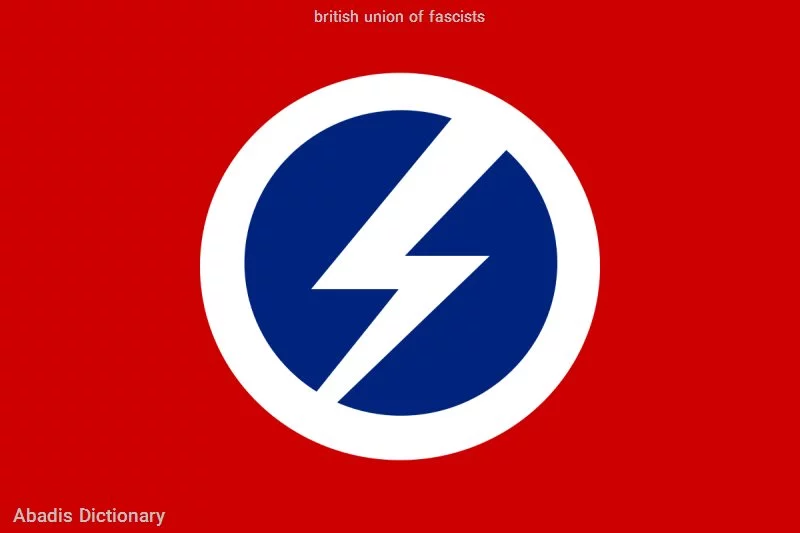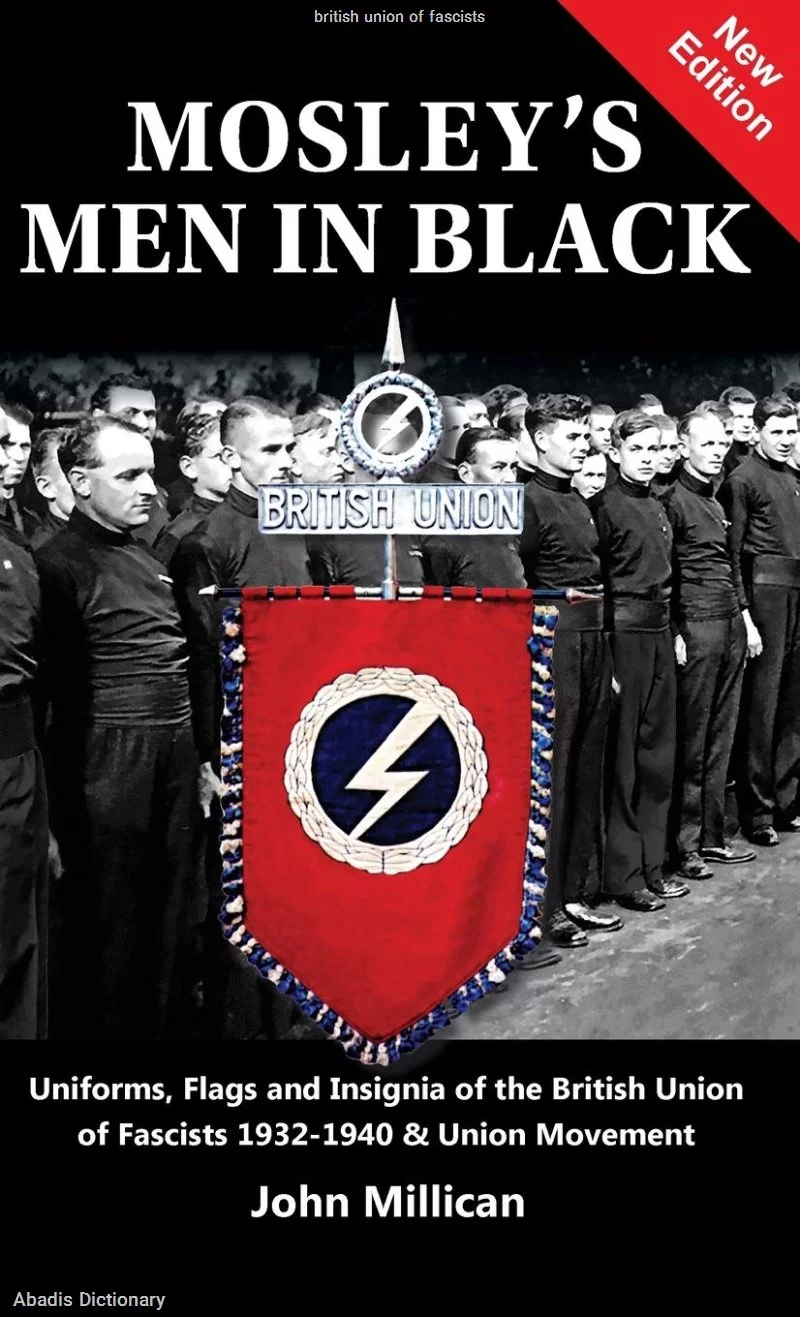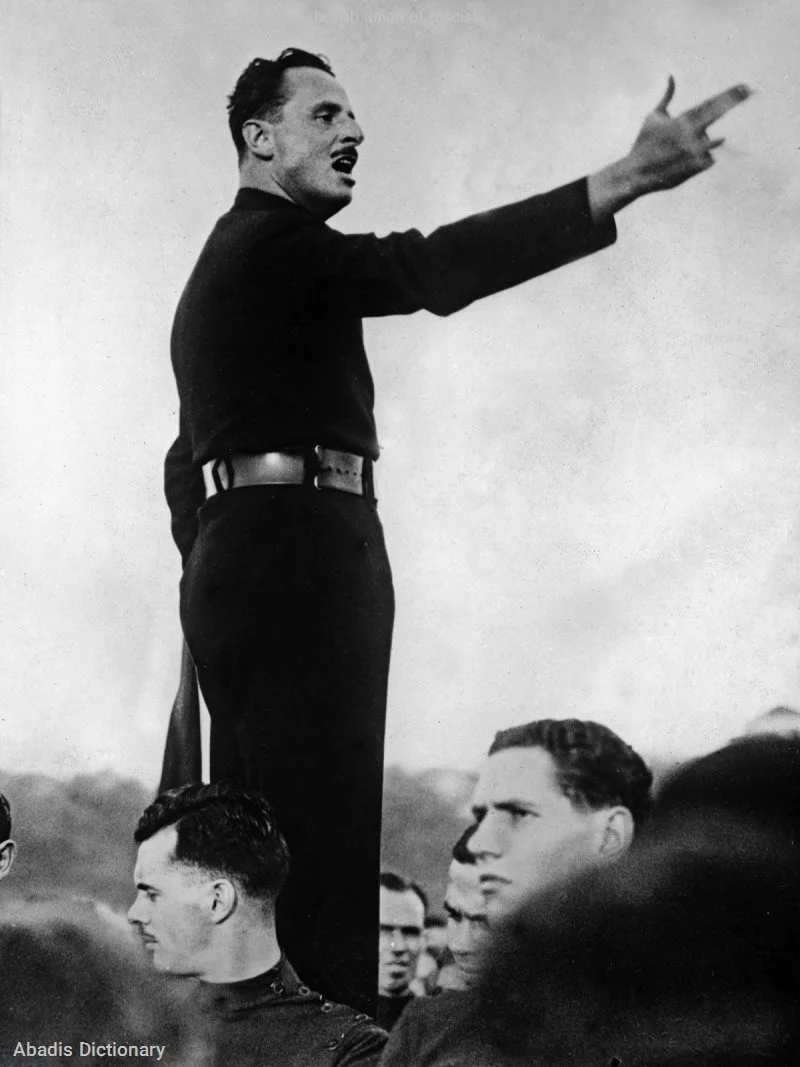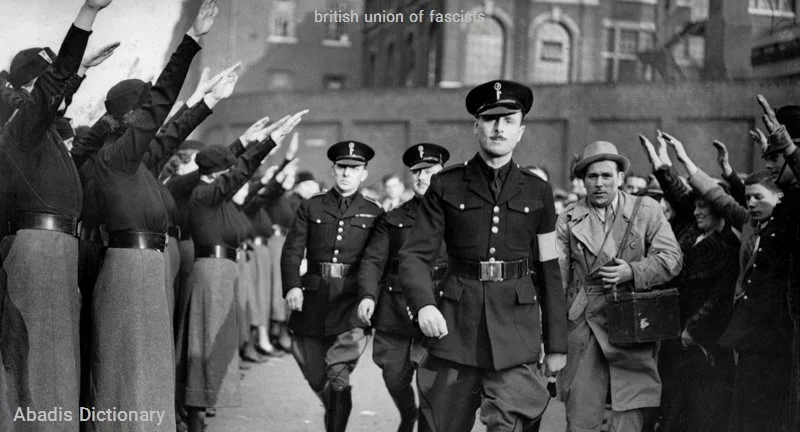اتحادیه فاشیست های بریتانیا ( به انگلیسی: British Union of Fascists ) ( BUF ) یک حزب سیاسی فاشیست در کشور انگلستان بود که در سال ۱۹۳۲ توسط آسوالد ماسلی ایجاد شد. موسلی در سال ۱۹۳۶ نام خود را به اتحادیه فاشیست ها و ناسیونال سوسیالیست انگلیس و در سال ۱۹۳۷ به اتحادیه بریتانیا تغییر داد. در سال ۱۹۳۹، به دنبال آغاز جنگ جهانی دوم، حزب توسط دولت انگلیس منع شد و در سال ۱۹۴۰ منحل شد.
... [مشاهده متن کامل]
به دنبال شکست انتخاباتی پیشین خود، حزب جدید، در انتخابات عمومی ۱۹۳۱، این حزب در سال ۱۹۳۲ از جناح راست افراطی انگلیس ظهور کرد. بنیاد این اتحادیه در ابتدا با استقبال گسترده مردم روبرو شد و افراد قابل توجهی را به خود جلب کرد، در این دوره حزب ادعا کرد ۵۰٬۰۰۰ عضو دارد. بارون مطبوعاتی لرد روترمر یکی از حامیان برجسته اولیه بود. با رادیکال شدن بیشتر حزب، حمایت ها کاهش یافت. رالی المپیا در سال ۱۹۳۴، که در آن تعدادی از معترضان ضد فاشیست مورد حمله شاخه شبه نظامی اتحادیه فاشیست های بریتانیا، یعنی نیروی دفاع فاشیست قرار گرفتند، حزب را از بسیاری از طرفداران جدا کرد. استقبال حزب از یهودی ستیزی به سبک نازی ها در سال ۱۹۳۶ منجر به بروز اختلالات فاشیستی فزاینده ای شد، به ویژه نبرد خیابان کابل در ایست انتهای لندن در سال ۱۹۳۶. قانون نظم عمومی ۱۹۳۶، که لباس رسمی سیاسی را ممنوع کرد و به خشونت های سیاسی فزاینده واکنش نشان داد، به ویژه بر BUF که طرفدارانش پس از لباس فرم پوشیده به �پیراهن سیاه� معروف شدند، تأثیر زیادی داشت.
خصومت فزاینده انگلیس نسبت به آلمان نازی، که مطبوعات انگلیس با آن پیوسته اتحادیه فاشیست ها را همراهی می کردند، به کاهش عضویت جنبش کمک کرد. سرانجام در سال ۱۹۴۰ و پس از آغاز جنگ جهانی دوم، توسط دولت انگلیس ممنوع شد، به دلیل ظن اینکه طرفداران باقیمانده آن ممکن است " ستون پنجم " طرفدار نازی ها را تشکیل دهند. تعدادی از اعضای برجسته اتحادیه فاشیست ها تحت مقررات دفاعیه 18B دستگیر و داخلی شدند.
British Union of Fascists
1932–1940 British fascist political party
The British Union of Fascists ( BUF ) was a British fascist political party formed in 1932 by Oswald Mosley. Mosley changed its name to the British Union of Fascists and National Socialists in 1936 and, in 1937, to the British Union. In 1939, following the start of the Second World War, the party was proscribed by the British government and in 1940 it was disbanded.
The BUF emerged in 1932 from the electoral defeat of its antecedent, the New Party, in the 1931 general election. The BUF's foundation was initially met with popular support, and it attracted a sizeable following, with the party claiming 50, 000 members at one point. The press baron Lord Rothermere was a notable early supporter. As the party became increasingly radical, however, support declined. The Olympia Rally of 1934, in which a number of anti - fascist protestors were attacked by the paramilitary wing of the BUF, the Fascist Defence Force, isolated the party from much of its following. The party's embrace of Nazi - style anti - semitism in 1936 led to increasingly violent anti - fascist confrontations, notably the 1936 Battle of Cable Street in London's East End. The Public Order Act 1936, which banned political uniforms and responded to increasing political violence, had a particularly strong effect on the BUF whose supporters were known as "Blackshirts" after the uniforms they wore.
Growing British hostility towards Nazi Germany, with which the British press persistently associated the BUF, further contributed to the decline of the movement's membership. It was finally banned by the British government on 23 May 1940 after the start of the Second World War, amid suspicion that its remaining supporters might form a pro - Nazi "fifth column". A number of prominent BUF members were arrested and interned under Defence Regulation 18B




... [مشاهده متن کامل]
به دنبال شکست انتخاباتی پیشین خود، حزب جدید، در انتخابات عمومی ۱۹۳۱، این حزب در سال ۱۹۳۲ از جناح راست افراطی انگلیس ظهور کرد. بنیاد این اتحادیه در ابتدا با استقبال گسترده مردم روبرو شد و افراد قابل توجهی را به خود جلب کرد، در این دوره حزب ادعا کرد ۵۰٬۰۰۰ عضو دارد. بارون مطبوعاتی لرد روترمر یکی از حامیان برجسته اولیه بود. با رادیکال شدن بیشتر حزب، حمایت ها کاهش یافت. رالی المپیا در سال ۱۹۳۴، که در آن تعدادی از معترضان ضد فاشیست مورد حمله شاخه شبه نظامی اتحادیه فاشیست های بریتانیا، یعنی نیروی دفاع فاشیست قرار گرفتند، حزب را از بسیاری از طرفداران جدا کرد. استقبال حزب از یهودی ستیزی به سبک نازی ها در سال ۱۹۳۶ منجر به بروز اختلالات فاشیستی فزاینده ای شد، به ویژه نبرد خیابان کابل در ایست انتهای لندن در سال ۱۹۳۶. قانون نظم عمومی ۱۹۳۶، که لباس رسمی سیاسی را ممنوع کرد و به خشونت های سیاسی فزاینده واکنش نشان داد، به ویژه بر BUF که طرفدارانش پس از لباس فرم پوشیده به �پیراهن سیاه� معروف شدند، تأثیر زیادی داشت.
خصومت فزاینده انگلیس نسبت به آلمان نازی، که مطبوعات انگلیس با آن پیوسته اتحادیه فاشیست ها را همراهی می کردند، به کاهش عضویت جنبش کمک کرد. سرانجام در سال ۱۹۴۰ و پس از آغاز جنگ جهانی دوم، توسط دولت انگلیس ممنوع شد، به دلیل ظن اینکه طرفداران باقیمانده آن ممکن است " ستون پنجم " طرفدار نازی ها را تشکیل دهند. تعدادی از اعضای برجسته اتحادیه فاشیست ها تحت مقررات دفاعیه 18B دستگیر و داخلی شدند.




